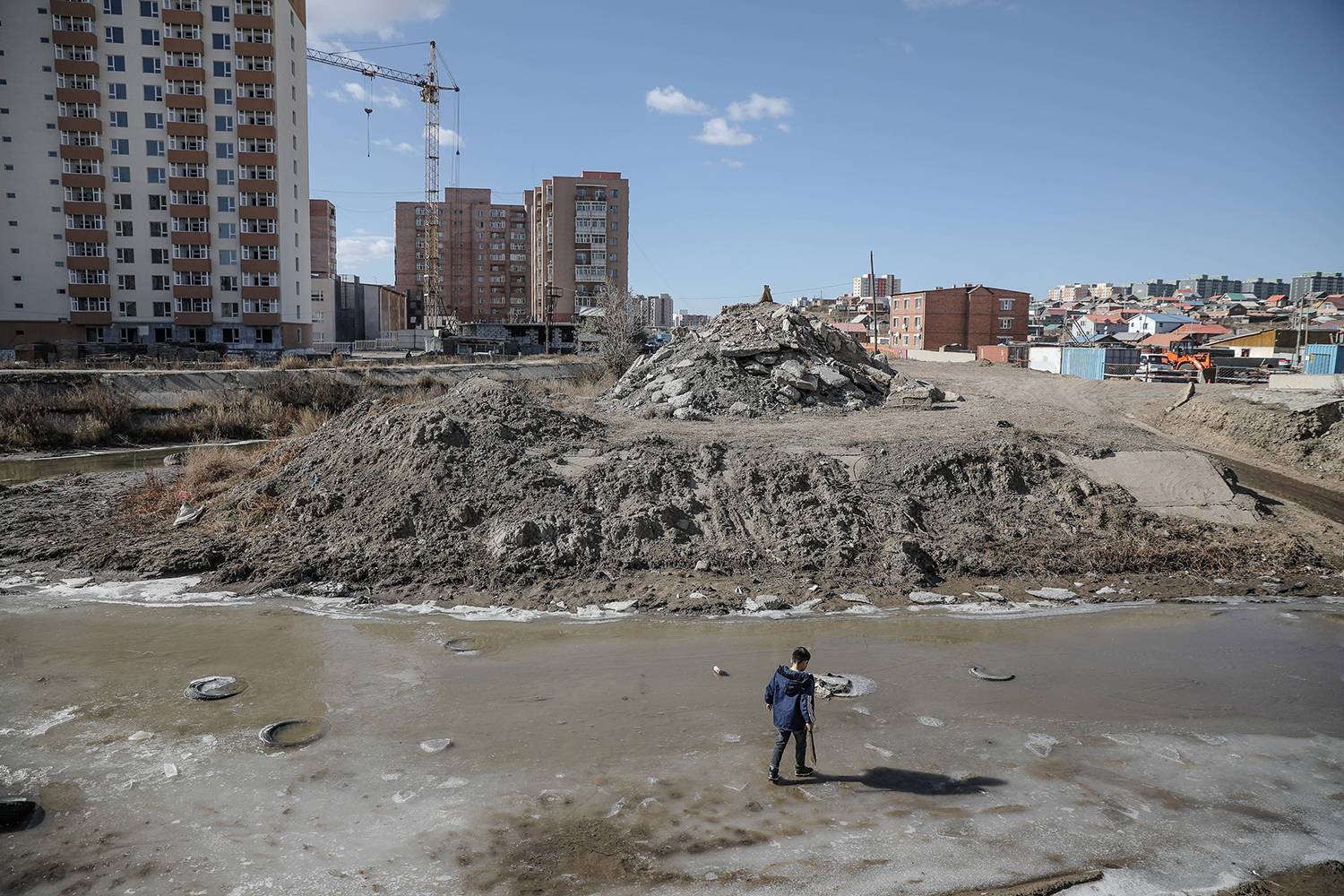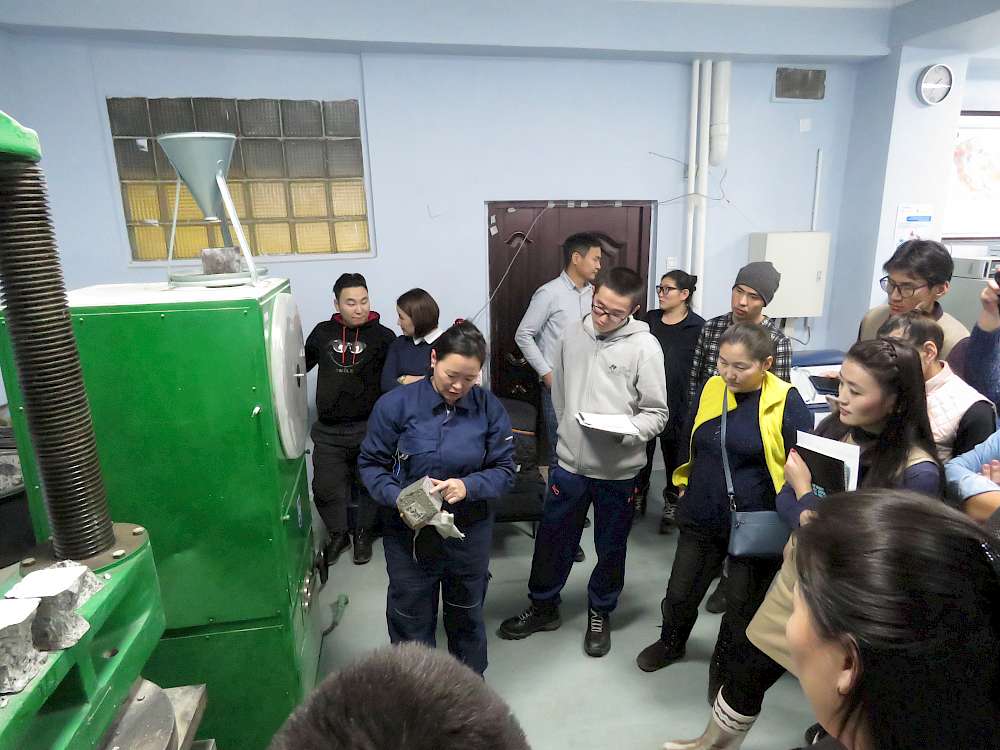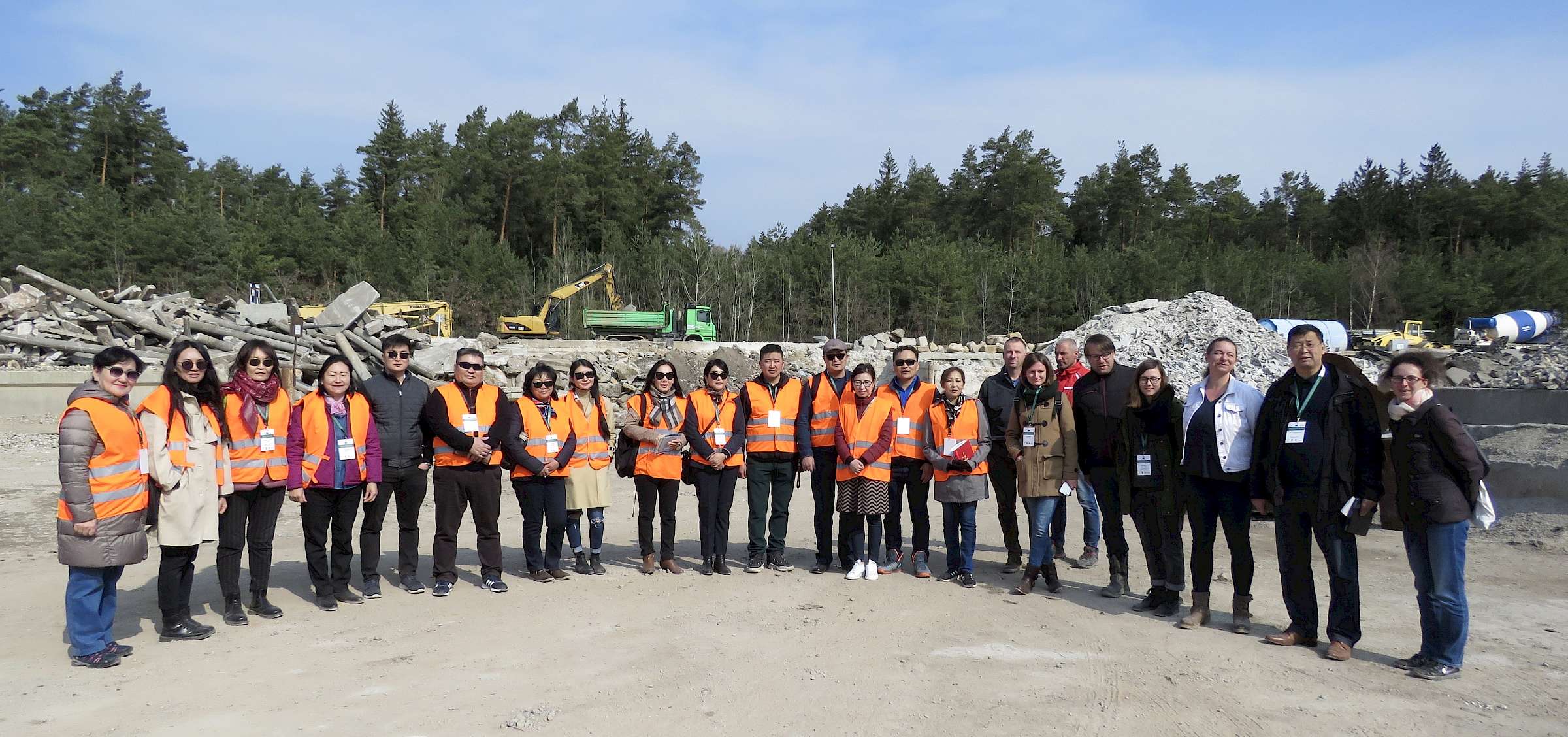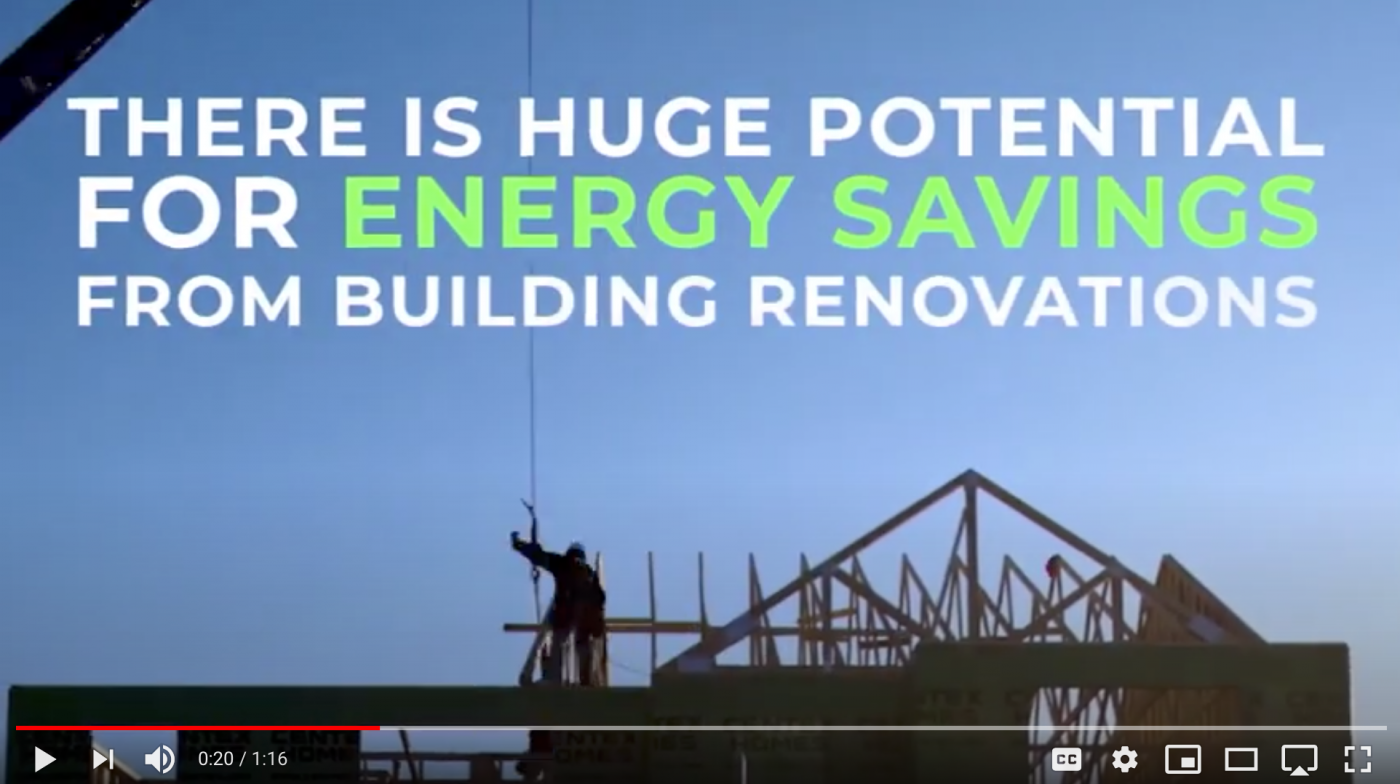
Mongolia is the 19th largest country in the world by area, however, its population of just 3.29 million, also makes it the world’s most sparsely populated country. Since the 1990 democratic revolution, 40% of Mongolia’s population migrated to the capital city of Ulaanbaatar, resulting in an increasing demand for new housing and the booming of the construction industry, rapidly expanding until this day. Existing buildings are, however, not resource efficient, with many relying on fossil fuels for heating and cooling and old technologies and wasteful appliances in their operations.
Due to the absence of resource efficient procedures, Mongolia produces massive amounts of Construction and Demolition Waste (CDW). More than 80% of this waste is illegally dumped, with harmful consequences on both human health and the environment, increased energy consumption and depletion of landfill resources.
The European Union is committed to tackle these challenges together with Caritas Czech Republic (CCR) and its partners to boost building renovation for climate neutrality and recovery. The goal of the EU SWITCH-Asia project Improving Resource – Efficiency and Cleaner Production in the Mongolian Construction Sector through Materials Recovery (in short Recycling Building Materials) was to contribute to the reduction of climate change and poverty in Mongolia through supporting local construction Small and Medium Entrepreneurs (SMEs) to switch to more resource efficient practices.
In 2016 we started this project to address the issue of ever increasing construction demolition waste, which was not recycled and in most of the cases it was just dumped at illegal sites, contributing to the pollution of the environment. CDW project succeeded in management and transfer of knowledge from the European Union to Mongolia, successfully developed and obtained standards for construction materials produced from construction demolition waste, established modern, high precision laboratory for developing construction materials, and though it was not initially planned, the project was also able to rech out all 21 aimags, in order to promote the newly approved 'Procedures on cleaning, collecting, segregating, transporting, recycling, recovering, disposing and landfilling of construction and demolition waste' by organizing workshops in all provinces, explains Mr. Traian Laurentiu, Hristea, Ambassador of the European Union to Mongolia.
In an attempt to increase local production of affordable construction products made from construction and demolition waste, and reduce the carbon footprint of the construction sector, CCR in collaboration with a research team of the Mongolian University of Science and Technology (MUST) tested and developed a new prototype of the recycled concrete aggregate made from recycled construction and demolition waste.
 The Economic Feasibility Study that was conducted on the prototype has shown that the latter is not only introducing a new circular solution in the current production of construction material, but also offering a more affordable solution to using natural resources.
The Economic Feasibility Study that was conducted on the prototype has shown that the latter is not only introducing a new circular solution in the current production of construction material, but also offering a more affordable solution to using natural resources.
In line with the new EU Renovation Wave Strategy (2020), in particular, its ambition to make the construction ecosystem fit to deliver sustainable renovation based on circular solutions, use and reuse of sustainable materials, and the integration of nature-based solutions, the project supported the promotion and development of standardized sustainable solutions and the reuse of waste material. These standards have also been approved by respective authorities in Mongolia.
While the Renovation Wave Strategy has been designed as an encompassing and integrated strategy for Europe, one cannot disregard its external dimension, and importance and validity also beyond Europe. This Strategy posits that the transformation towards a climate-neutral building stock will only be possible if existing jobs are transformed to include green and circular skills. Only well-informed professionals can play their potentially key role in offering end-users latest available technical opportunities for resource and energy efficiency. Finally, professionals require training to improve accessibility in renovations. This is extremely important also in the context of Mongolia and its rapidly evolving building and construction sector.
To boost know-how and workers’ skills in the renovation sector, a new curriculum for construction and demolition waste management has been developed under the Recycling Building Materials project and is now being taught at the MUST to prepare future labor force in the sustainable and greener construction sector. Moreover, more than 4,000 representatives from the construction sector in all 21 provinces of Mongolia and Ulaanbaatar have been successfully trained on more efficient management of construction and demolition waste which will support future green job creation.

“We tried to put the techniques and methods of recycling and reusing of construction and demolition waste into practice after our engineers and employees participated in this training. For example, we demolished three facilities of the General Customs Administration and 85% of them were reused to build the Sports facility of the Selenge province. In addition, we separated wooden materials from around 38,000 tons of construction and demolition waste and delivered it to about 120 households for firewood usage. We also provided more than 200 trucks of soil from demolition waste to rehabilitate the broken dam in Khentii province. There are many such examples” shared Mr. Lkhagvajav.M, Director of the construction and demolition company Kharvaach Mergen LLC.
The starting point of a sustainable renovation comes with access to knowledge. In addition to the capacity building programme, a series of publications, including a Handbook for students, seven studies on CDW management, CDW recycling opportunity, public awareness, legal environment, and economic feasibility of the waste-based product have been developed and are accessible online (here).
To strengthen awareness, legal certainty, and incentives for public and private owners to use innovative practices, the project was also determined to improve the Mongolian legal framework in regard to construction and demolition waste management. The approval of the "Procedure on cleaning, collecting, segregating, transporting, recycling, recovering, disposing and landfilling of construction and demolition waste" was an important milestone towards achieving this goal and creating a sustainable Mongolian construction sector. The Procedure was approved by the Ministry of Construction and Urban Development, who became one of the strongest advocates of the project’s objectives. This new procedure will bring solutions to the issues of illegal dumping of construction demolition waste and will contribute to the implementation of the revised "Law on Waste" (2017) in Mongolia.
SWITCH-Asia Recycling Building Materials was one of a kind successful pilot initiative in the sustainable construction and demolition sector in Mongolia. In 2016, when the project was initiated, there was insufficient information on the current resource profile of buildings and the potential benefits of reused materials. Lack of trust in the quality of the prototype of construction material made from recycled construction and demolition waste was also a challenge the project’s team had to address. Nationwide media campaigns have been organized to educate and inform millions of people on Construction and Demolition Waste (CDW) Management and its importance in creating a sustainable built environment in Mongolia. The project team also participated in 14 expos and exhibitions. As a result of the project’s success, the CCR in Mongolia was awarded the “The Best Project and Program Implementer” for improving resource efficiency and cleaner production in the Mongolian construction sector through materials recovery during the Barilga Expo 2020, the most prestigious Mongolian construction exhibition.
While the project has reached to an end, solid foundation has been created throughout its implementation. The public-private partnerships that have been established, the creation of an enabling policy and legal environment, and the capacities developed nationwide, will ensure that Mongolia will continue to surf the “Renovation Wave”, sustaining the country’s economic recovery from COVID-19 while greening its buildings, creating jobs, and improving lives.
Photo credits: Caritas Czech Republic (CCR), SWITCH-Asia Recycling Building Materials
Learn more about the EU Renovation Strategy
Recycling Building Materials Impact Sheet



